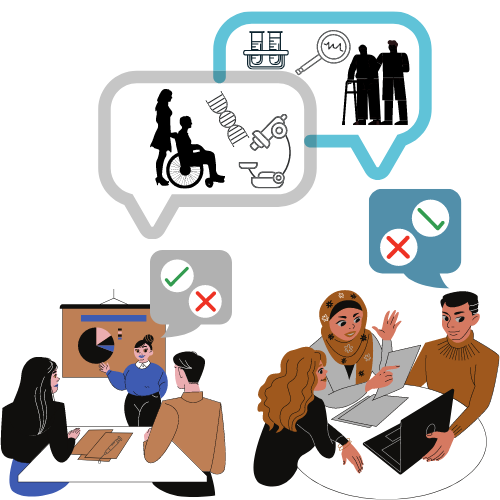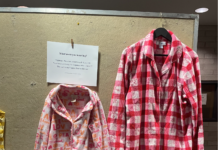On Wednesday, Feb. 3, 2021, members Vanessa Vahedi and Diya Chowdhury of the Geriatric Health Systems Research Group (GHS) gave Imprint insight into their research and current projects.
“The Geriatric Health Systems Research Group (GHS) is like any research group. It combines researchers, students and other staff members and it’s focused on essentially the older adult population, and there’s lots of different projects that were involved that have to do with older adults in different sectors of the healthcare system,” Diya Chowdhury, a member of the research group, said.
According to the two members, the GHS’s main research goals and priorities include improving primary care for older adults, advancing aging technology, promoting patient and citizen engagement in health care and enhancing health system integration.
“ It’s not just hospitals, it’s also [about] community homecare for various different aspects of the health system,” Chowdhury said.
Furthermore, both members emphasized the importance of collaboration between team members, researchers, their partnerships with various stakeholders, as well as with the participants themselves.
Paul Stolee, a professor within the School of Public Health and Health Systems leads the GHS. Chowdhury said Stolee’s experience and collaborative approaches help strengthen the team of interdisciplinary researchers.
“He [Stolee] has so much experience and he brings so much to the table,” Chowdhury said, adding that the team’s collaborative efforts make it particularly significant in their research field.
Vahedi also mentioned another group under the GHS, known as Seniors Helping As Research Partners (SHARP).
“SHARP is essentially a group of older adults in our community that are our…partners in the research that we’re conducting,” Vahedi said, adding that the seniors play a role in the consultation process. “We learn what kind of initiatives they want, what their vision is, what they want to see and then we try to implement that.”
When asked about the GHS’s current projects and research, Vahedi and Chowdhury mentioned the group’s collaboration with the Canadian Frailty Network, as well as their initiative called Connectivity During COVID-19.
The collaboration “is about transforming primary health care for older adults living with frailty,” Chowdhury said. “The focus question is compared to usual care in primary settings. Does our proposed model improve health, social and economic outcomes for older Canadians living with frailty?”
As with other research projects, both group members said the COVID-19 pandemic was a major barrier to their research.
“I would say COVID-19 is a big barrier because…in-person interviews are recommended for older adults,” Chowdhury said, referring to the technological challenges faced by the seniors. “We’ve resorted to telephone interviews for a lot of our research projects and once the restrictions are done, we will also be going back to…in-person interviews with specific considerations to make sure [we are] abiding by the laws that are mandated.”
More information about their current research and projects can be found on the GHS website. Both members encourage the UW community to follow and support their research, as well as getting involved through the GHS website and the group’s Twitter: @GHS_UW.
CORRECTION: The quotes in this article have been edited for length and clarity. Professor Paul Stolee’s name was misspelled but has since been corrected. Imprint regrets this error.
































